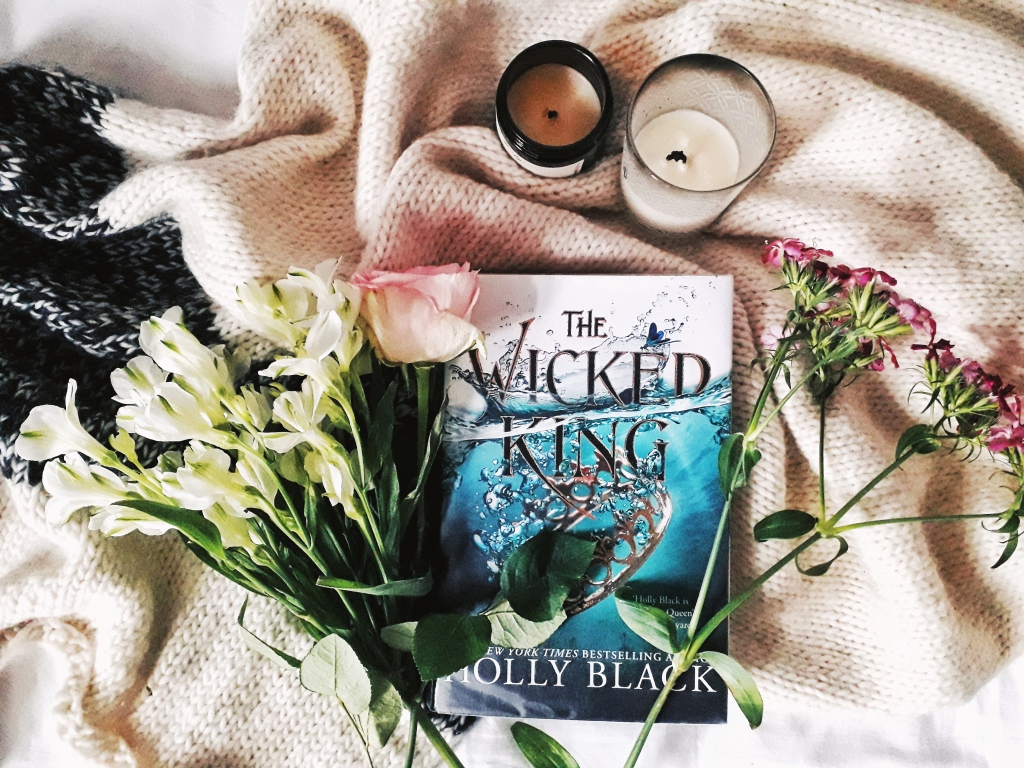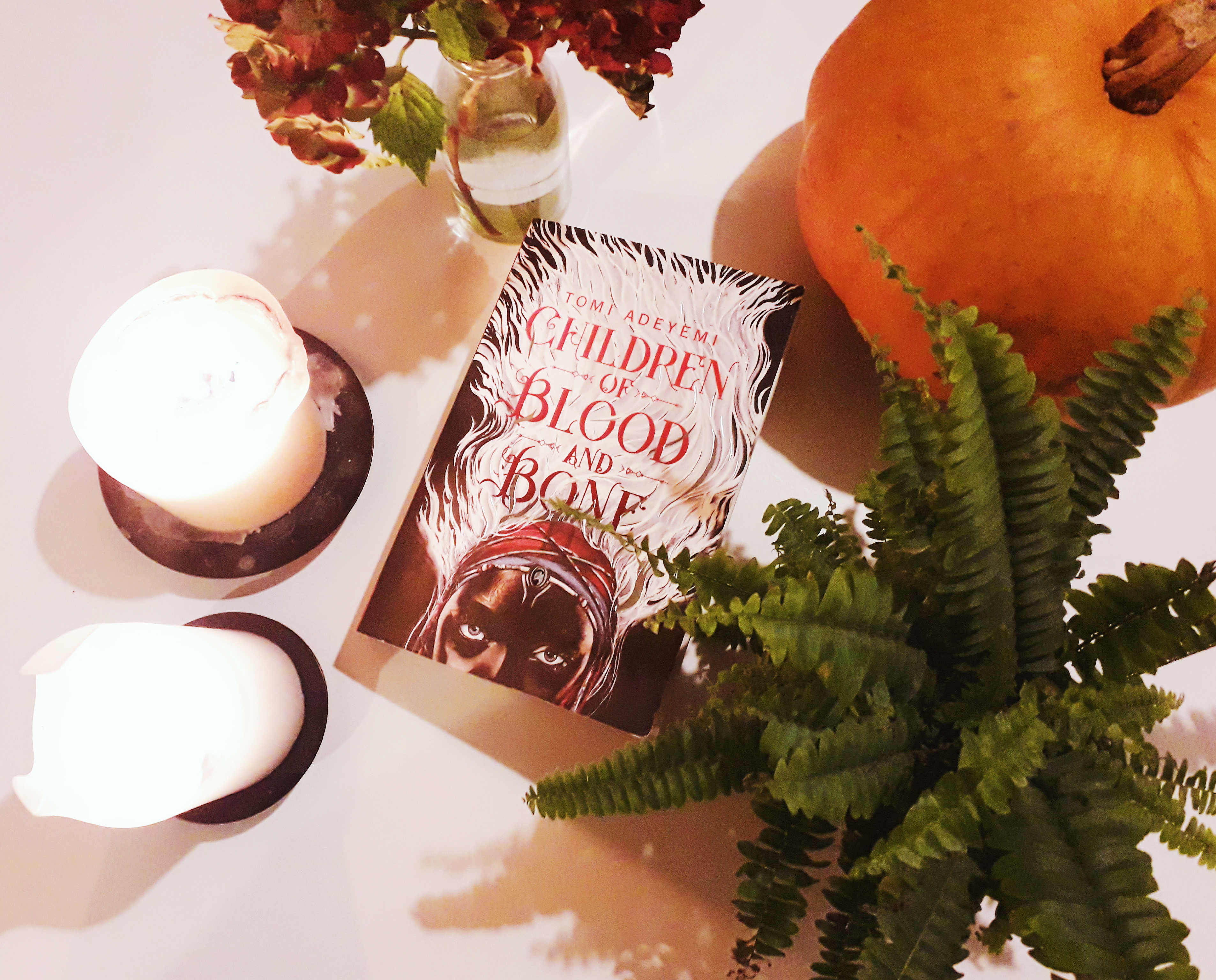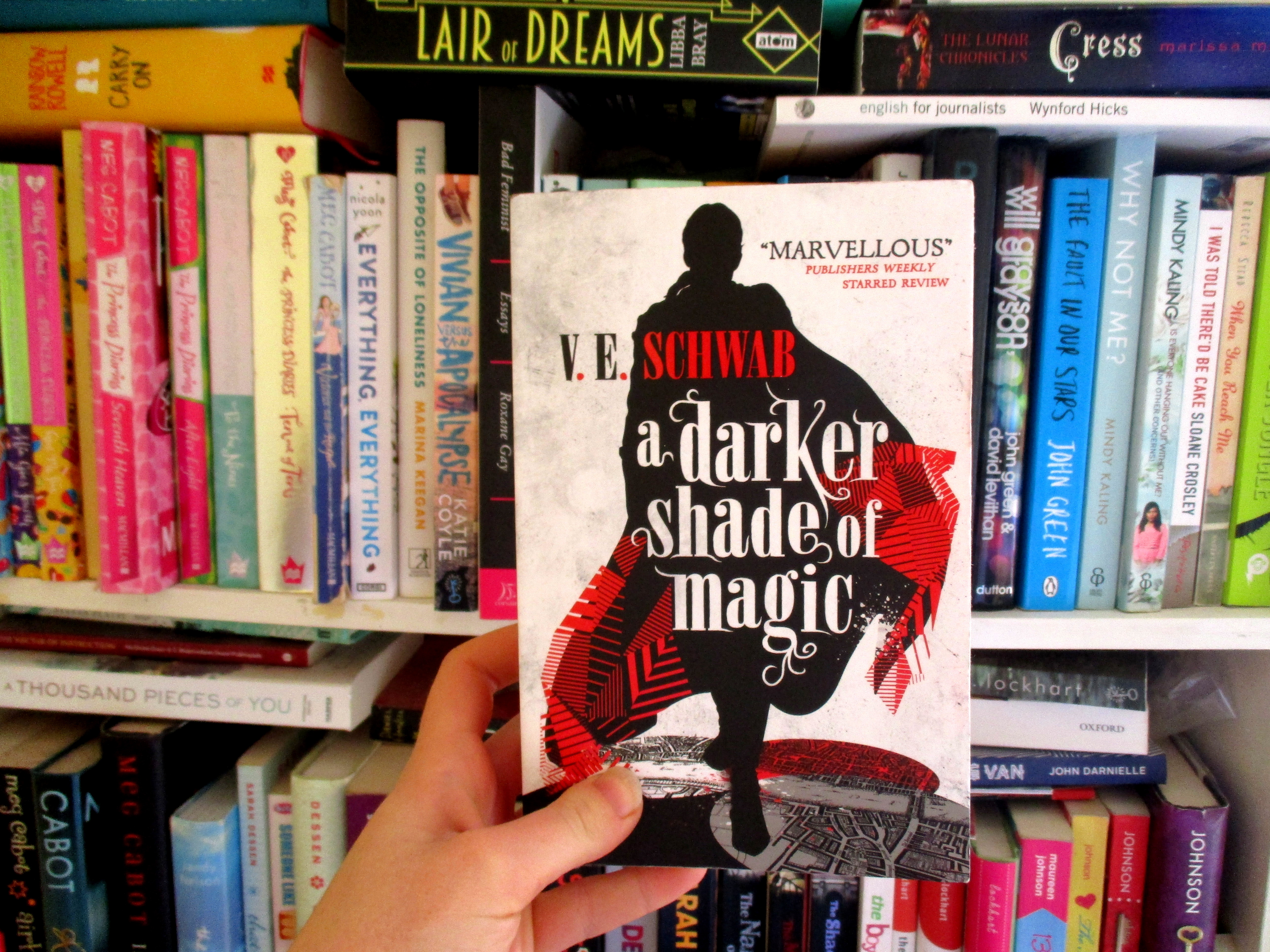Jude has tricked Cardan onto the throne, binding him to her for a year and a day. But the new High King does everything in his power to humiliate and undermine her, even as his fascination with her remains undimmed.
Meanwhile, a traitor in the court is scheming against her. Jude must fight for her life and the lives of those she loves, and also battle her own complicated feelings for Cardan. Now a year and a day seems like no time at all…

Another tale of power grabbing, deceit, betrayal and lust, The Wicked King is a sequel worthy of its predecessor.
Five months after the end of The Cruel Prince and we land back in the world of faerie – and, I’m happy to report, nobody has gotten any nicer. Reluctantly King Carden – now kind of Jude’s magical slave – is leaning hard into the whole sexy, rakish, self destructive thing, meanwhile Jude is pretending like her new found position of power isn’t going to her head.
It’s totally going to her head.
The desperate scramble for control over the kingdom that took flight with the bloody ending of book one really blossoms this time around – no sooner has Jude gotten her hands on the crown (ahem, to keep safe for her baby brother, ahem) when a brand new force rears up to take it from her.
And this girl is not letting go without a fight. We would expect no less, obviously.
The unfolding of Jude’s corruption continues to completely fascinate me. Book one was all about setting up the divide that Jude has straddled her entire life: a human girl in a magical world, raised by the man she saw murder her mother (but he’s her dad – if not biologically – and she feels for him whether she wants to or not), disgusted by the abuses rife in the world of faerie – and the world of her father in particular – yet drawn to them somehow, too. Violence and the feeling of control that comes with it holds a magnetic pull for Jude, one she can’t always resist, even as she wonders what this all means for her in the long term. You know when you’ve got a super unhealthy habit but you’re going through a hard time and you justify it to yourself like ‘it’s okay, I’ll stop from I’ve gotten through… X’ – well, that’s like Jude, but with murder. As she’s learning, it’s much harder to put behind you than an over indulgence of Ben & Jerry’s.
Her final step over the divide into evil-dom seems to come, surprisingly, with her sort-of reunion with her twin sister Taryn, who she is kind of estranged from for fucked up boy-related reasons that took place during book one. Along with her request to be friends again, Taryn brings a bunch of Jude’s things to her new home in the royal palace – toys, ‘talismans’ of her childhood – and as soon as her sister leaves, Jude dumps them on the fire. It’s a symbolic moment, her transformation into this new iteration of herself is complete. At least, that’s what she wants to believe.
She and Carden fall further into their delicious toxicity. Don’t get me wrong – IRL, I would not support this relationship, but within the bounds of Jude’s world, it makes sense. Their mutual disgust/fascination with each other continues to play out in inventive and sexy ways, as they veer toward and then away from something like, maybe, genuine affection. Until one of them inevitably betrays the other and they are back to square one of absolute disgust with the occasional make out break in between fights.
I can’t wait to see how this all ends. I put a hold on book three at the library and then the UK was hit with the latest lockdown with no end in sight, however, so I must resolve myself that sadly, it’ll probably be a while.
For those who can get their hands on it however, I can’t recommend this series enough. It’s dramatic, thrilling, sexy, ridiculous and exactly the level of escapism we need right now.






![20170521_122904[1]](https://22isstillyoungadult.files.wordpress.com/2017/05/20170521_1229041.jpg)
![20170502_105415[1]](https://22isstillyoungadult.files.wordpress.com/2017/05/20170502_1054151.jpg)


